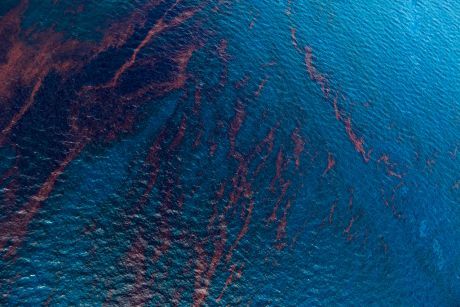News
You are here
Don't trust BC Liberal opposition to Northern Gateway pipeline

June 18, 2013
The newly re-elected BC Liberal government has made its submission to the Joint Review Panel on the Enbridge Northern Gateway Project. Their submission concludes, in part, “The Province is not in a position to support approval of the project as proposed for the reasons set out above.”
That sounds good and drew lots of applause for the Liberals. But if you look closer, their opposition is more window dressing than substance.
A damning indictment of Enbridge
The Liberal submission includes a damning indictment of the lack of planning that Enbridge has done to deal with a spill along the pipeline route and after a tanker accident in the ocean.
The provincial government points out the inaccessibility of the pipeline route for crews to reach when a spill occurs. They point out that Enbridge has not developed plans to deal with reaching inaccessible areas, to reach inaccessible areas during extreme winter weather, or to deal with spills that occur under several meters of snow. Even the vague plans that Enbridge has produced so far accept that the spill might be able to travel 60 km down some rivers before they would even be able to reach the site of the spill, never mind how long it would take them to gather the people and equipment to do anything about it.
The Liberals' submission states that Enbridge does not know under what circumstances the dilute bitumen carried in the pipes will float, sink, or be mixed in turbulent river waters. The submission quotes one of Enbrige's own witness to the review panel: “it's extremely difficult to predict the behaviour of this product.”
The submission points out that “it is not at all clear what NG means by 'response' when doing nothing is a possible response to a spill, and when spill response may consist of monitoring and allowing 'natural attenuation' to occur."
“NG has committed only to providing its detailed oil spill response plans to the National Energy Board 6 months in advance of operations.”
In a section entitled, “Enbridge does not follow procedures or learn from mistakes,” the submission reviews the response of Enbridge to its own previous spills and notes that not only does Enbridge not follow its own policies with regards to pipeline spills, but that each time it gets caught it profusely promises to enforce its own policies next time. “Enbridge has not demonstrated an ability to learn from its mistakes in order to avoid spills . . . given its pattern of making similar commitments in the past, there are serious reasons for concern that the commitments it has made in this proceeding will be hollow.”
Enbridge has a similar combination of unsubstantiated claims and vague plans, and sometimes they are only vague plans to make plans, when it comes to spills on the ocean. Their plans to deal with a spill do not contain details of what equipment or personnel they would need or where they would be located, but still they maintain they will provide a “world class” response to a spill. As the submission points out, a “world class” response should “adopt a standard which is no less stringent than that of northern British Columbia's closest neighbour.” However, Enbridge's response plans do not meet the response times required by the State of Alaska.
All good points. But a critique based primarily on Enbridge’s procedures leaves them an out.
Liberal strategy
The Liberal submission is completely silent on climate change. Since the only approach to the tar sands that makes sense if you are trying to mitigate climate change is to shut it down, and since the Liberals are a government first and foremost for business, this makes perfect sense.
The submission only mentions the First Nations to state that the province will not make any submission on whether the JRP process has satisfied its obligations to the First Nations. The proposed pipeline route passes over the land of, and rivers flowing into the land of, over 130 First Nations. These nations have signed the Save The Fraser declaration wherein they refuse to allow the pipeline to proceed. Simply by meeting, the JRP is ignoring the stated intentions of the First Nations, as is the BC government.
This submission makes clear the impossibility of dealing with spills on treacherous mountain terrain, turbulent spring rivers, under metres of snow, and on stormy seas. Despite that it does not close the door on the pipeline.
Terry Lake, MLA for Kamloops-North Thompson, was the environment minister for the Liberals before the election and is now the Minister of Health. In an interview on CBC radio he explained that the government is saying no to the pipeline, “in the form that we've seen it . . . but the process does allow for conditions to be attached and until we see what those conditions would be . . . we really can't say if it's a yes or a no.”
The final paragraphs of the submission make a similar point, they clearly state that the province does not approve the project as proposed, but then go on to list the conditions that should be met if the JRP panel does decide to approve the project.
On top of this, the BC government's submission is only one of thousands. If the JRP recommends to Harper and his cabinet that the project proceed but only with some conditions to deal with some of the concerns with spills, Premier Clark need only point out that the panel listened to thousands of individuals and groups and in their wisdom has proposed conditions that are in the best interest of us all. At that point she can wash her hands of any responsibility for the project, leaving it all in the lap of the federal government.
The Liberals may hope to confuse the opposition to the pipeline into believing that the project will not go ahead. Our job is to continue organizing so that when the JRP releases what will probably be a conditional approval for the project we can build a movement of blockades, walkouts and strikes across the province to stop it.
Section:










